National Institutes of Health (NIH) Community Partnerships to Advance Science for Society (ComPASS)
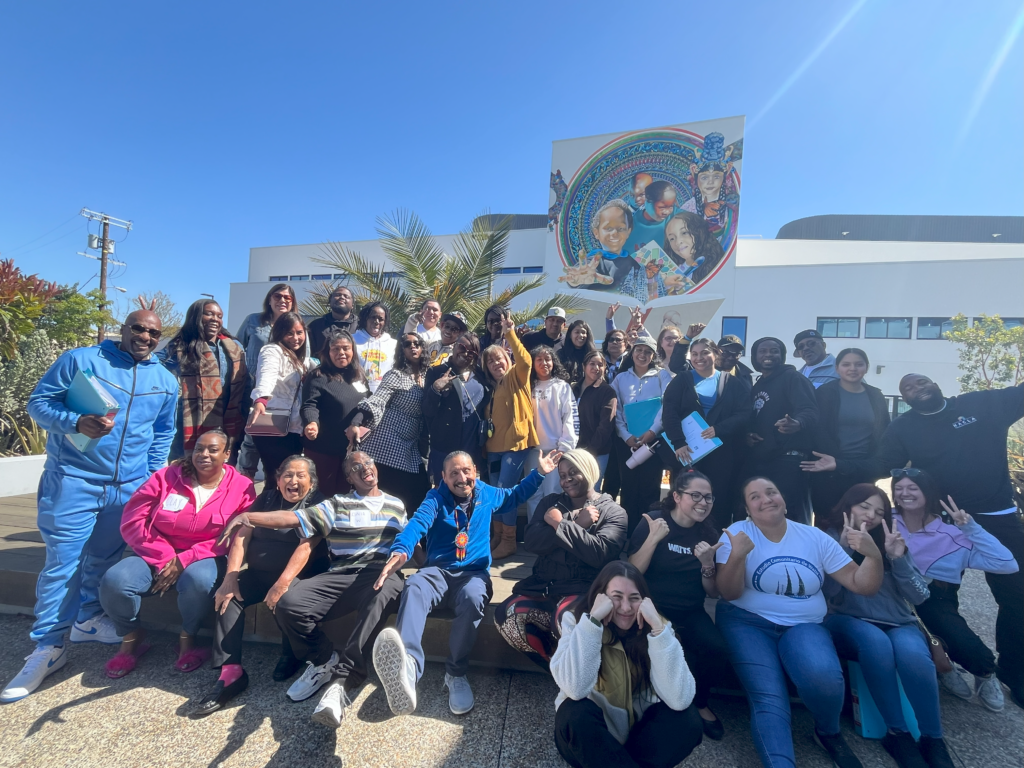
The ComPASS program provides an unprecedented opportunity to design innovative intervention projects that focus on social determinants of health for resident-empowered research. The program will enable neighborhoods and researchers to work collaboratively as partners in all phases of the research process to enhance the quality of interventions and advance health disparities research. The intent of this research is to improve health outcomes in neighborhoods affected by health disparities and inform social policies, systems, and practices to achieve optimal health for all. Rather than tackling one disease, organ system, or life stage at a time, Compass will develop an NIH-wide strategy to address structural factors that impact multiple dimensions of health*.
Partners: UCLA Clinical Translational Science, Charles Drew University, Watts Rising Community Leadership Council
The Community Leadership Council (CLC) was formed in April 2024 as a way to directly involve residents and Watts stakeholders in the design and implementation of the selected intervention. The council has been convening once a month for the last year and has held conversations around various social determinants of health. The intervention choosing and finalization will take 2 years. By the end of the 2 years, the council will decide on and complete the design a specific program (“intervention”) to tackle Watts’ most pressing health needs.
What have we been doing?

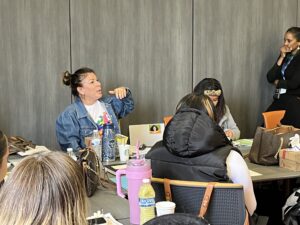
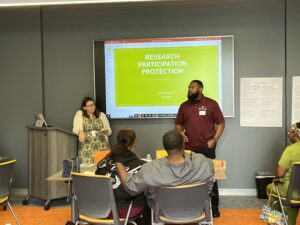
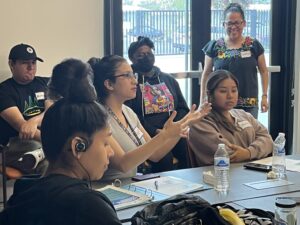
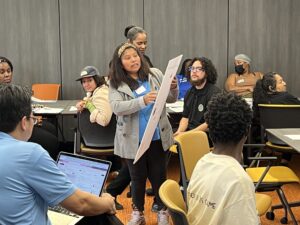
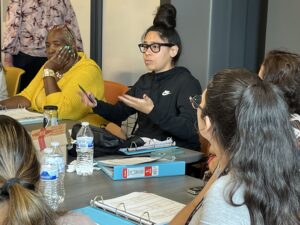
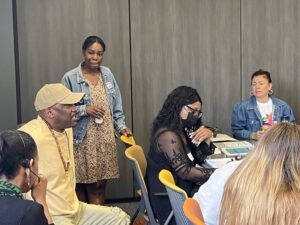
May 2024- The CLC met at the new Kaiser Permanente building in Watts. The meeting kicked off with a share out of photovoice assignments by the CLC members. Each photo was related back to impact on health. Residents shared many similar feelings of being impacted negatively by things like excess trash and unsafe streets and agreed on the resiliency and importance of the neighborhood coming together to make improvements- as they have done for decades. Members also met data partners at UCLA and heard a research 101 presentation that helped promote a better understanding of research ethics and best practices for neighborhood-centered research. The meeting ended with small break out groups where members discussed different structural determinants of health (ex: safety and violence, healthcare systems). Members received relevant neighborhood data on each topic, shared their own lived experiences, and began to brainstorm intervention ideas.
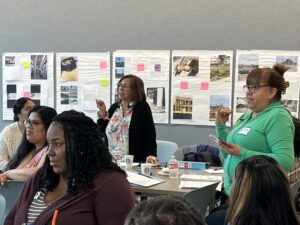
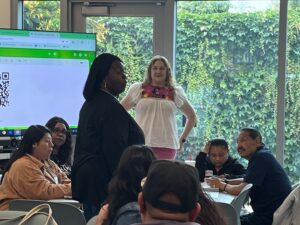
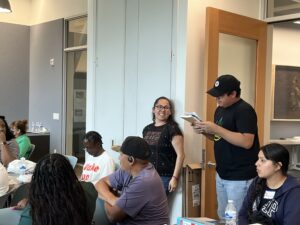
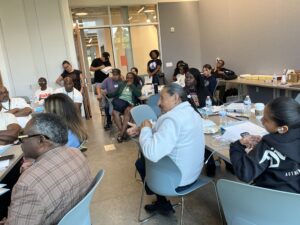
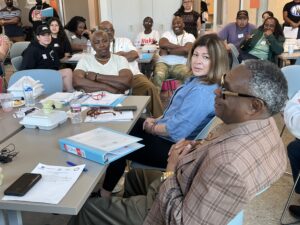
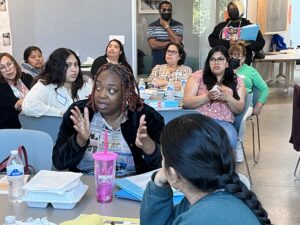
June 2024- This month we started out with GOOD NEWS! To start out on a high, members shared the positives they have recently seen in their lives and in the neighborhood. Following this, we continued in the conversation of how the CLC is going to make decisions and build consensus. This is a very important discussion as the CLC will decide on one structural intervention to bring into the neighborhood. CLC members met in small groups to dive deeper into how we want to come together to make decisions. Members shared various ideas such as establishing counsels, setting intentions, anonymous voting processes, and forming sub-committees. Next month, members will share their photo voice assignments (photos of parts of the neighborhood with descriptions) that will focus on the importance of financial health in Watts.
- Presentation slides for the first CLC meeting can be found in English here and in Spanish here.
- Presentation with Los Angeles County health data can be found here. in English and here in Spanish.
- Research 101 slides can be found in English here and in Spanish here.
- these provide a great introduction into the ethics of neighborhood-based research.
*As of April 2025, NIH has issued a termination letter for the entire COMPASS program. Watts Rising staff, research partners, and CLC members are currently investigating additional means of funding to continue developing a research program and structural intervention to implement in Watts.
**As of July 2025, Watts Rising’s NIH ComPASS grant was reinstated. The group reconvened for their first meeting since termination on August 2, 2025 to celebrate and resume the planning and implementation design of the group’s chosen interventions. HACLA, UCLA, and CDU team has resumed meeting regularly to plan for submittal of their final intervention draft that was created alongside the CLC over the last years of planning. (updated 8/8/2025)